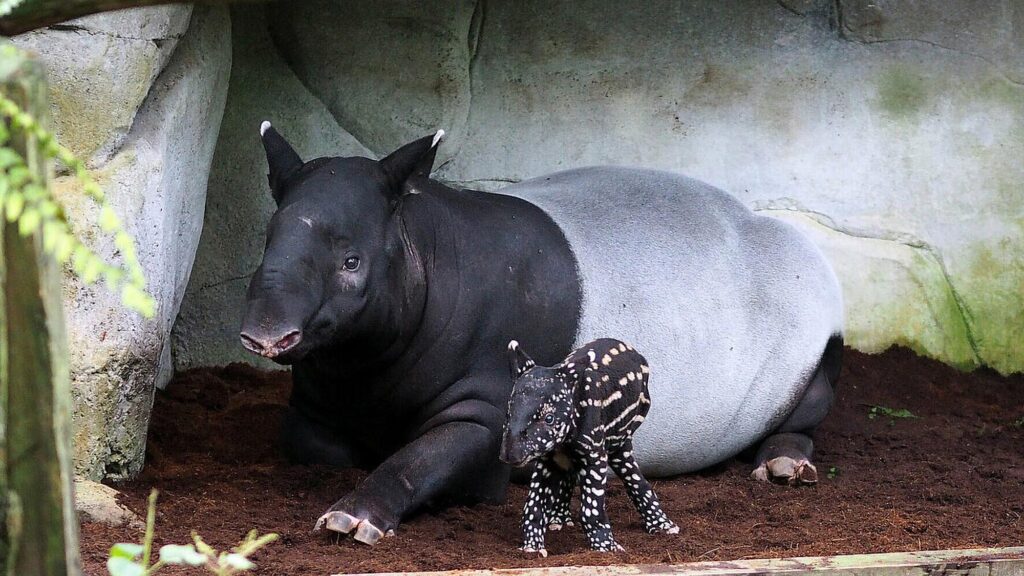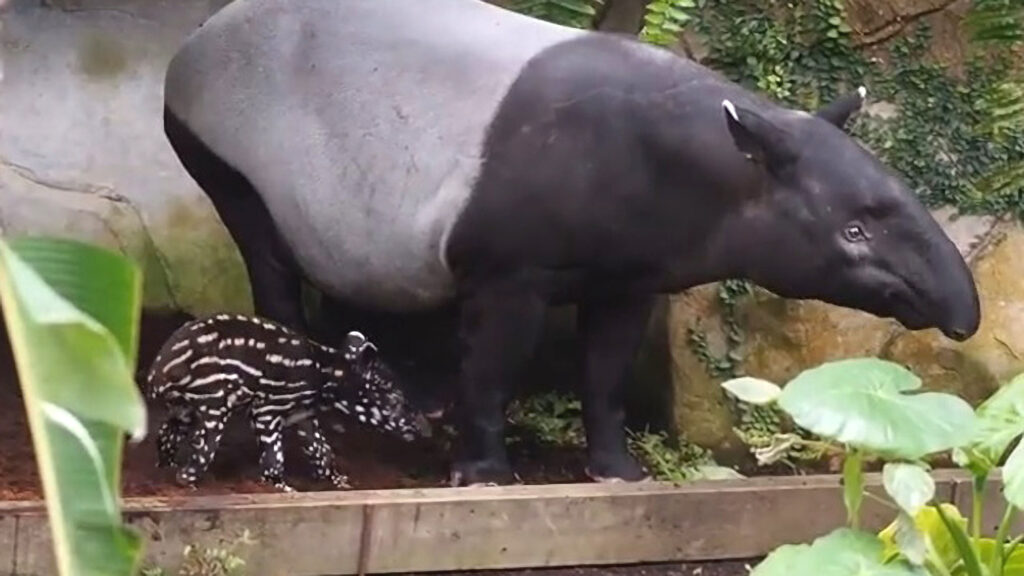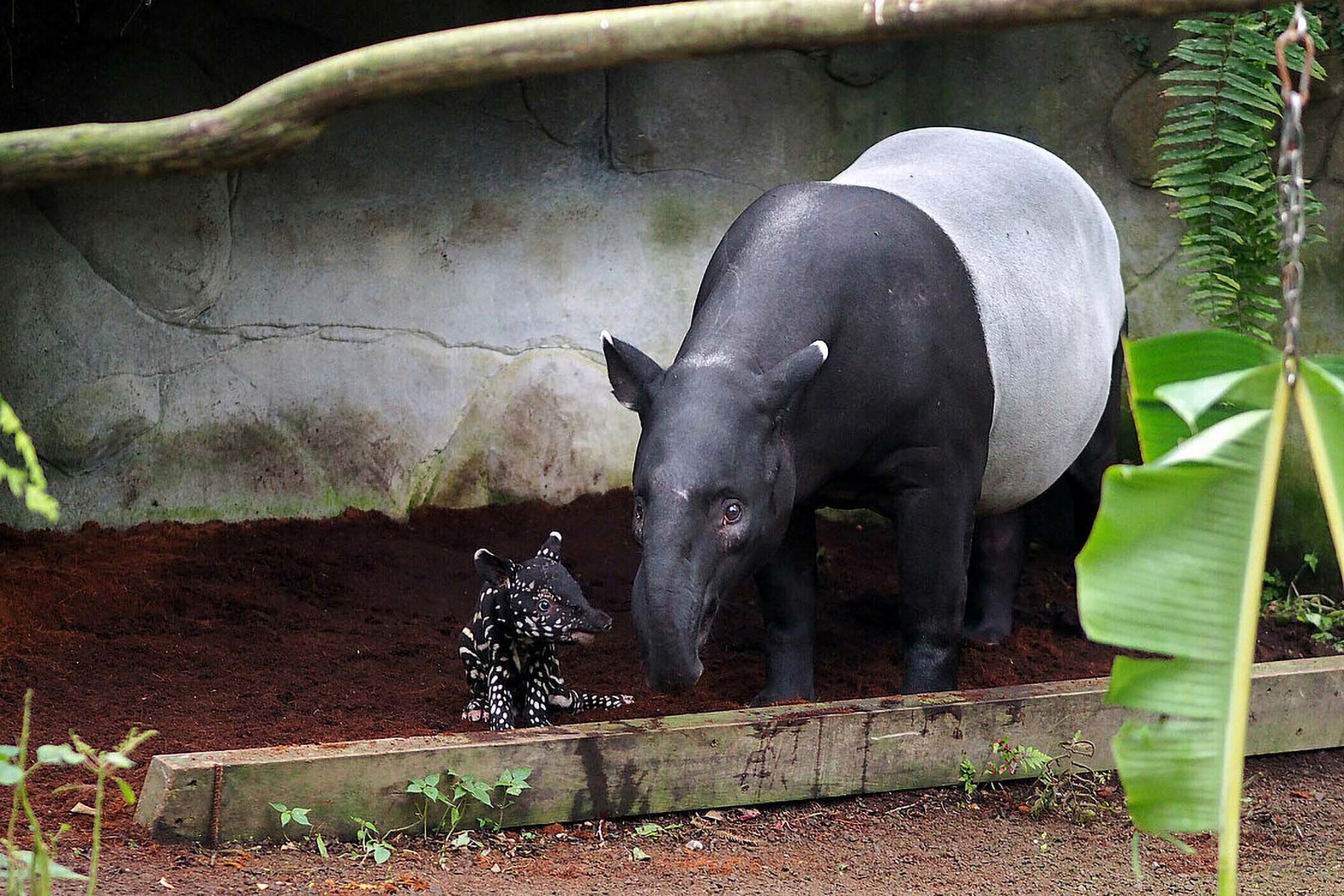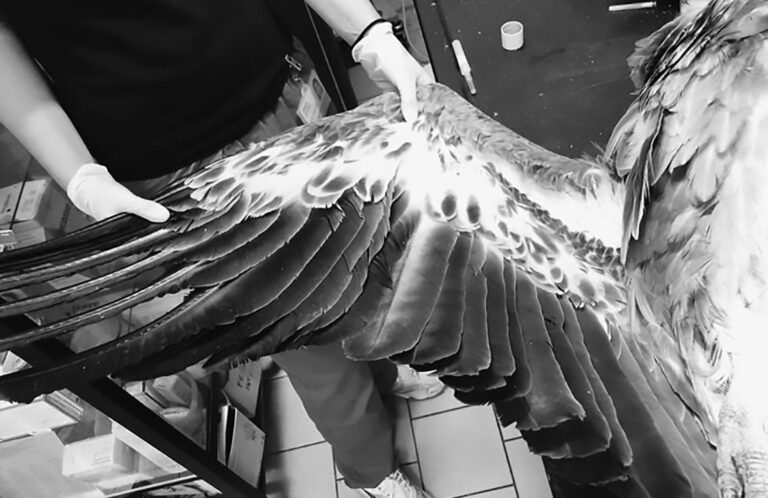This adorable and endangered Malayan Tapir cub has died just a week after a German zoo celebrated its birth.
The adorable male Malayan tapir (Acrocodia indica) cub was born at Leipzig Zoo in Germany last Friday morning, 5th November, and it died on Saturday, 13th November.
Leipzig Zoo said in a statement that the first few days of a cub’s life are crucial and despite its mum Leila feeding it regularly, the little tapir died of currently unconfirmed causes just eight days after its birth.
Ariel Jacken, the senior curator at the zoo, said: “The disappointment over the loss is great and we are sad that the tapir boy did not make it despite the great efforts.”
The vets did everything possible to try to save the little cub, but they were not able to stabilise its condition and it died on Saturday evening.
The cub and its mum had been spending all their time together developing a bond and exploring their enclosure.

(Zoo Leipzig/Newsflash)
In the clip of the young cub, which was released just a few days after its birth, it does not dare to venture too far away from its mum, who keeps a close eye on it at all times.
The Malayan tapir is the only tapir that is native to the Old World and Leipzig Zoo has been very successful in breeding and rearing the endangered species.
In the last decade, three Malayan tapirs named Baru, Kedua and Ketiga were born at the zoo and later reintroduced into the wild as part of a conservation programme.
Related story:
German Zoo Celebrates The Birth Of An Adorable And Endangered Malayan Tapir Cub
In the wild, they are found in the rainforests of Southeast Asia, more specifically in Sumatra in Indonesia, the Malaysian Peninsular, Myanmar, and Thailand.
The International Union for Conservation of Nature (IUCN) considers the Malayan tapir to be ‘endangered’, which means the species is very likely to become extinct in the near future.
The gestation period of the Malayan tapir is around 390 days and they have been known to live for over 30 years.

(Zoo Leipzig/Newsflash)
The zoo was hopeful that the cub would make it to adulthood, as the last two offspring born to Laila also died early on in their lives.
The zoo added that it is possible that this cub was killed by the same pathogen that killed Laila’s two previous offspring.
However, the zoo is yet to confirm the cause of the cub’s death and details surrounding the pathogen, but they expect it to become clear in the coming weeks.
To find out more about the author, editor or agency that supplied this story – please click below.
Story By: Peter Barker, Sub-Editor: Joseph Golder, Agency: Newsflash
The Ananova page is created by and dedicated to professional, independent freelance journalists. It is a place for us to showcase our work. When our news is sold to our media partners, we will include the link here.




